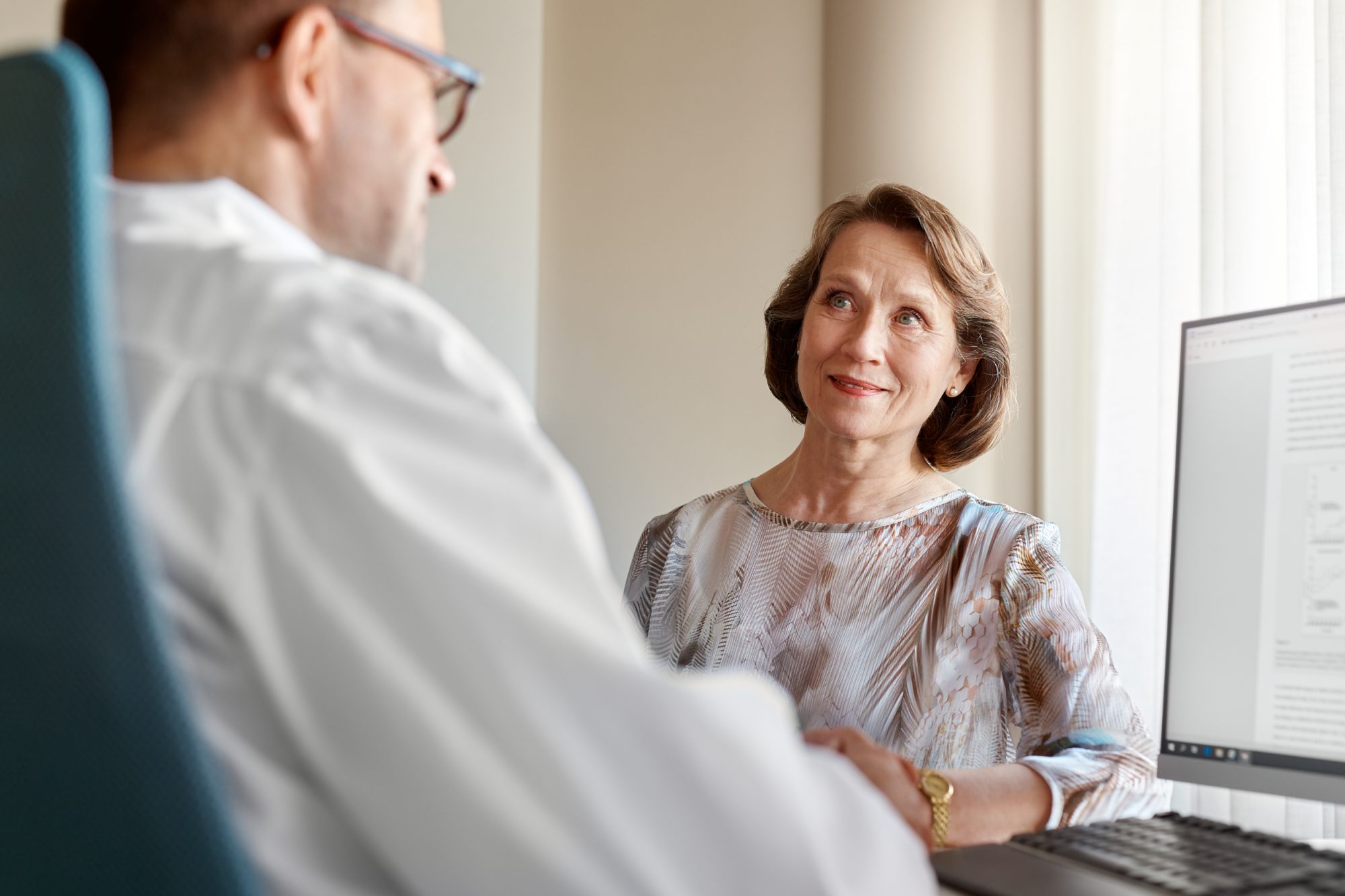Most oesophageal cancers are advanced at the time of diagnosis. Therefore, curative treatment is rarely an option. There are two main types of oesophageal cancer: squamous cell carcinoma, which starts in cells of the inner lining of the oesophagus, and adenocarcinoma, which starts in gland cells.
Risk of Oesophageal cancer
The risk factors are partially the same as in stomach cancer, but the role of Helicobacter pylori is not as significant. Excessive use of alcohol, smoking, advanced age and family history of oesophageal cancer increase the risk. The so-called Barrett syndrome is associated with an increased cancer risk. Barrett syndrome refers to pathological changes in cells of the lower portion of the oesophagus, caused by chronic acid exposure. The risk can be reduced by a more varied diet, abstinence from hard liquor and monitoring and treatment of the patient’s Barrett syndrome.
The most important risk factors for squamous cell carcinoma are smoking and the use of alcohol. Continuous and simultaneous excessive use of tobacco and alcohol can increase the risk to 100-fold. The main risk factors for adenocarcinoma include age, being male, overweight, smoking and reflux disease-related Barrett’s mucosa.
Symptoms of Oesophageal cancer
Oesophageal cancer can cause a number of different symptoms, including dysphagia (difficulty swallowing), pain, frequent intense vomiting at meals and rapid weight loss. At this point, the cancer has already caused significant obstruction of the oesophagus. Difficulty swallowing is the most typical initial symptom of oesophageal cancer. Pain and bleeding may sometimes be associated with the disease. If the cancer has already spread, metastases cause various symptoms, depending on their location.
Diagnosis of Oesophageal cancer
Oesophageal cancer is diagnosed by oesophagoscopy. Additional examinations may include an MRI scan, an intra-oesophageal ultrasound scan or a CT scan. Today, PET imaging is an important means for assessing the local extent of the cancer and the presence of metastases.
Treatment of Oesophageal cancer
Treatment options include surgery (removal of the tumor), chemotherapy and radiotherapy. Small and local tumors are always removed surgically, the patient’s condition allowing.
Tumors located in the middle and upper sections of the oesophagus are often treated with chemoradiotherapy, which is a combination of radiotherapy and sensitising cytostatic treatment. Chemoradiotherapy may be the only form of treatment applied, or, the patient’s condition allowing, it may be followed by surgical treatment. Tumors located in the lower sections of the oesophagus are treated similarly to stomach cancer. Treatment may commence with chemoradiotherapy or chemotherapy, after which the objective is to surgically remove the tumor.
Advanced, non-operable oesophageal cancer is usually treated with radiotherapy, pharmacotherapy or a combination of these. Cytostatics play a key role in pharmacotherapy. If the oesophagus becomes obstructed, the related symptoms can often be alleviated using a stent, which is a tube of webbing set into the oesophagus, dilating the obstructed section.
Comprehensive treatment of oesophageal cancer at Docrates Cancer Center
Our multiprofessional team of experts specialising in oesophageal cancer provides each and every patient with individually tailored and comprehensive diagnostics and treatment. At the Docrates Cancer Center, each patient receives top diagnostics, innovative treatment and the newest pharmacological products. We treat our patients according to the latest international and domestic treatment recommendations. We also offer complementary services such as physiotherapy and nutritional counselling.
Our team specialising in oesophageal cancer comprises numerous specialist doctors, including oncologists, radiotherapy doctors, gastroenterologists, surgeons, nuclear medicine physicians, a radiologist, a pathologist as well as nurses, who are all experienced experts in treating cancer. The members of this multiprofessional team work in close collaboration to ensure accurate diagnostics and the best possible treatment plans. The role of the treatment team is emphasised in treating oesophageal cancer, as a combination of pharmacological treatment, radiotherapy and surgery is often required.
Patients suspecting they may have oesophageal cancer or patients with an oesophageal cancer diagnosis are directed to our specialist with no delay, no referral required. Our specialists have years of experience in treating cancer and a dedicated approach to their work. Our friendly personnel understand the fears and concerns related to cancer and help support patients throughout their treatment.










